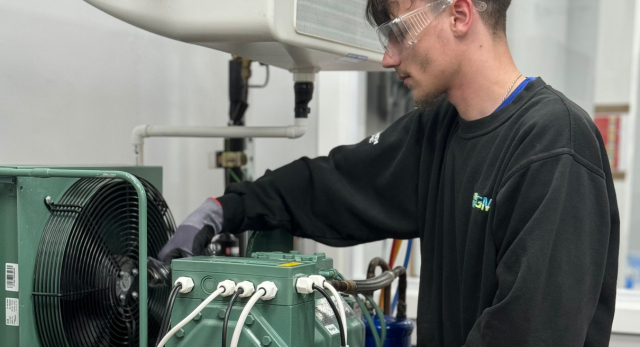Gas Safety Week is here, and it’s not only homeowners who need to know the importance of keeping their appliances in good working order. Employers have a bigger responsibility: more people are at risk when gas equipment is unsafe at work! The theme for Gas Safety Week in 2024 is ‘Every Check Counts’ and we want to make sure that employers know what to check to keep employees Gas Safe.
Health and Safety at Work etc Act 1974
In the UK, it is the law for employers to ensure workplace health and safety. The Health and Safety at Work Act is the primary piece of legislation governing this. In the Act, employers are instructed to safely conduct gas fittings in all industrial workplaces, such as factories, mines, quarries, agricultural premises, construction site huts, sewage works and gas-fitting testing premises.
Gas appliances placed in any of these locations must be fitted by a competent person who has sufficient training and experience or knowledge. Furthermore, if any parts of working premises are used as domestic, residential or sleeping accommodation then work on gas fittings must be carried out by someone on the Gas Safe Register.
Gas Safety (Installation and Use) Regulations, 1998
The Gas Safety Regulations for the Installation and Use of gas fittings also apply to employers. These regulations cover work on gas fittings, both natural and LPG, in other premises; e.g. domestic properties, shops, restaurants, schools, and hospitals. In these locations, gas work must always be carried out by someone on the Gas Safe Register.
Gas safety checklist for engineers
Gas Safety engineers have a responsibility to help business customers be safe by keeping them informed. Gas Safety Week is the perfect opportunity to help customers brush up on their gas safety knowledge. If you are a gas engineer, you can share the gas safety tips below with your clients this week! When choosing a Gas Safe Registered installer, employers must be made aware that they need to check their ID card and ensure they are qualified to work on the equipment particular to their business.
Top Employer Gas Safety Tips
- Make sure all gas appliances, pipes and flues are checked, maintained and serviced annually by a Gas Safe registered engineer
- Do not use any appliance you know or suspect to be unsafe. You can check for warning signs such as the appliance burning with a yellow or orange flame instead of a blue one, black marks on the appliance, a blinking pilot light, or excessive condensation in the room.
- Check that all rooms with gas appliances have adequate ventilation – don’t block air inlets to prevent draughts, and don’t obstruct flues and chimneys
- If a leak is suspected, the supply must be turned off immediately. Call the National Gas Emergency Service on 0800 111 999 for natural gas. For LPG, call the supplier.
- If in doubt, evacuate the building and inform the police, as well as the National Gas Emergency Service
- Do not turn a gas supply back on until a leak has been dealt with by a competent person
In an industrial setting, the potential risks and consequences are increased:
- Industrial and commercial plant explosions can be caused by the ignition of unburnt gas
- Consider the need for explosion relief and/or flame-failure protection as necessary
- Make sure that the gas supply is interlocked with the ventilation of the appliance
- Equipment should be designed, operated and maintained to make sure dangerous levels of carbon monoxide (CO) are not produced. Gas appliances should not be used in poorly ventilated spaces
- There should be enough ventilation to remove combustion products
- Make sure the operators are fully trained – use a safe procedure for purging, lighting up and shutting down the plant
More gas safety advice for employers can be found on the HSE’s website — Click Here
Make sure you show your support for Gas Safety Week but using the #GSW24.
If you’re a domestic installer interested in working on commercial appliances, check out our domestic to commercial changeover and up-skill packages.









